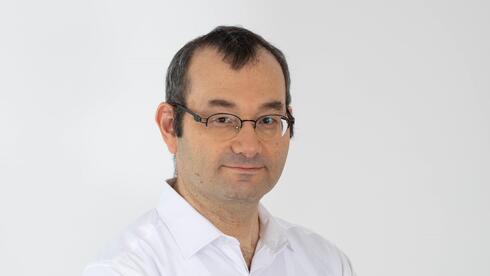
Palo Alto's platformization strategy pays off: revenues soar to $8 billion
Next-gen systems developed in Israel drive significant growth and position the company for further success.
Palo Alto Networks' financial reports have become one of the most important events in the cyber industry, if not the most significant. The company, which trades at a value of around $110 billion and is considered the largest in its field both in terms of market value and revenue, sets the tone and trends in cybersecurity.
Today, Palo Alto is pushing for "platformization," which means offering all corporate security solutions from a single provider—preferably from Palo Alto—some of which are provided for free. When CEO Nikesh Arora announced this direction six months ago, his reasoning was clear: CISOs (Chief Information Security Officers) in organizations were overwhelmed by the proliferation of software designed to solve specific problems. However, there has been a lingering concern that this new strategy is intended to mask Palo Alto's potential weaknesses in the face of hungry young competitors, including several Israeli startups led by Wiz.
1 View gallery


Palo Alto Networks' founder Nir Zuk (left) and CEO Nikesh Arora.
(Photos: Yuval Chen and Ryan Pervis)
The financial results released by Palo Alto last night provided some reassurance. The company, founded by Nir Zuk and employing nearly a thousand workers at its Israeli development center, exceeded forecasts for the quarter ending in July, the final quarter of the 2024 fiscal year. It also provided a solid forecast for fiscal 2025, which began in August, even if the growth rates are not what they once were.
Palo Alto ended the quarter with revenues of $2.2 billion, reflecting a 12% increase compared to the corresponding quarter. Although the new strategy has not yet significantly impacted the net profit, which was $357 million compared to $227 million in the same period last year, its effects are evident in the operating profit, where Palo Alto recorded a 6% decline to $238 million.
In the current quarter, Palo Alto expects revenues of approximately $2.1 billion, which would reflect a similar annual growth rate of 12%. The company ended the full fiscal year with revenues of $8 billion, marking a 16% increase compared to 2023. However, the annual forecast provided yesterday signals a lower growth rate of 13-14%, which would bring revenues to around $9.1 billion in 2025.
In terms of annual operating profit, Palo Alto recorded $684 million, a sharp increase compared to $387 million in 2023. The net income line experienced an unusual jump due to tax items, soaring to $2.6 billion compared to $440 million a year ago. With cash balances of $6.7 billion and a record stock level, Palo Alto is well-positioned to continue its active acquisition strategy into the new fiscal year.
"We're delighted with our Q4 results," Arora said in an earnings call. "We drove the top line ahead of the overall cybersecurity market and delivered improved profitability and strong cash generation.
"I know there was significant consternation around our platformization strategy six months ago. All I want to say is: I wish we had started down that path sooner. The amount of interest and activity around it has certainly been hardening and shows promise.
"We expect platformization to be a key driver toward achieving our goal of $15 billion in NGS ARR in fiscal year 2030," Arora added. "And our Q4 performance bolsters our confidence and our ability to reach this goal."
This statement by Arora is particularly significant for Palo Alto's Israeli operations, as next-generation systems (NGS) are primarily based on two product lines developed in Israel: the Cortex division and the Prisma Cloud division, both of which develop cyber solutions for the cloud. NGS ended fiscal 2024 with a revenue run rate of $4.2 billion, having grown rapidly at 43%. In the coming year, Palo Alto expects revenues of approximately $5.45 billion from this activity.
Arora also addressed the severe malfunction of its major competitor, CrowdStrike, which caused the shutdown of many companies about a month ago, including some in Israel. He emphasized that every product update is done in a phased manner, with testing among a small fraction of customers. He added, "The recent outage has caused a number of customers to reevaluate their options. They have initiated conversations with us around extended detection and response (XDR) and XSIAM. This, plus our industry-leading Cortex technology is appealing. As we've talked to everyone we have talked to so far, we think it has potential to further drive our Cortex momentum."














